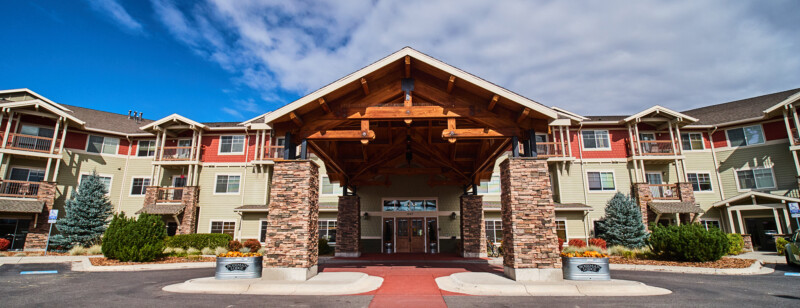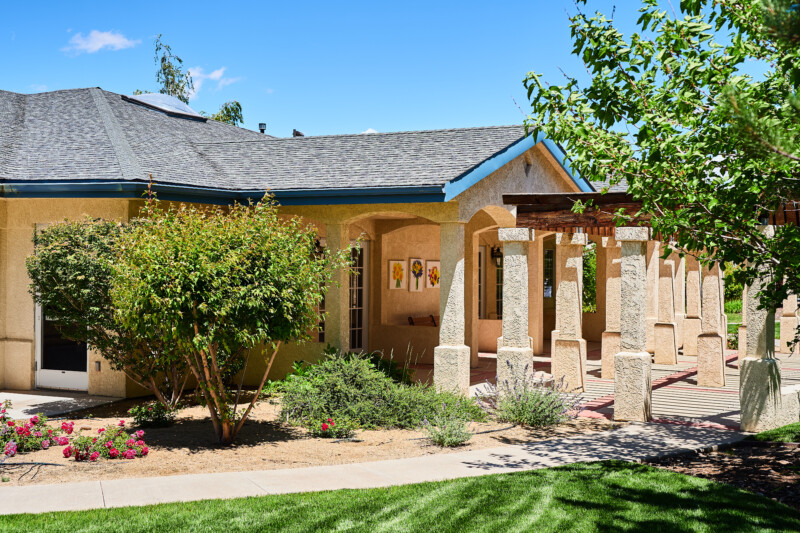
There are many options in senior living; how do you know what type of senior care community is appropriate? With so many choices, it’s easy to feel a little unsure about where to begin. Different communities offer different levels of support, from active and social independent living to assisted living and memory care designed for more hands-on needs.
The good news is that once you understand what each option provides, finding the right fit becomes much more manageable—and even reassuring. This guide will walk you through the main types of senior living to help you feel confident in your decision.
Types of Senior Living Care:
Independent or Retirement Living
Simply put, Independent Living is a residential community for adults aged 55 and over that provides a variety of amenities, services, and activities for residents. A person looking for senior living options for them self may find that Independent Living is a good fit.
An Independent Living community will often allow for a resident to enjoy their retirement without the need to deal with home maintenance, grocery shopping, cooking, regular cleaning, and more. In addition, Retirement Communities offer a variety of activities and events to encourage socialization and engagement.
Read our blog post “How to Create an Active Social Life After Retiring” for tips on growing your social network in your 60’s and beyond.
A resident who experiences a change in health or abilities may need to hire In-Home Care or move if they live in a stand-alone Retirement or Independent Living community. For peace-of-mind, active seniors may consider moving into an Independent Living community that offers Assisted Living as well, so they have more opportunity to age in place.

Bozeman Lodge Independent and Assisted Living offers all of the benefits of Independent Living with the knowledge that help, if needed, is nearby.
Assisted Living or Residential Care
Assisted Living or Residential Care provides personal care support services in connection with a residential living community. Assisted care services often entail support services for the activities of daily living (dressing, bathing, toileting, eating, and mobility), medication management, meals, enriching activities, and an environment with 24-hour help nearby.
Before moving into an Assisted Living community, a potential resident, their family, and community staff will complete an assessment of senior care needs. This assessment will help identify what services are needed to help achieve maximum independence and quality of life.
Schedule your free assessment at any of our Radiant Communities!

Arbors Memory Care in Sparks, NV offers specialized Memory Care services in a community designed to minimize agitation and other symptoms of Alzheimer’s or other forms of dementia.
Memory Care
Memory Care is a residential community specifically designed to meet the needs of seniors experiencing the symptoms of Alzheimer’s and other related dementias or memory loss. Most memory care communities also provide assisted care services in addition to the memory care programming. States regulate the endorsements for Memory Care with requirements for training, activity and care programming, and community features.
Things to look for in a Memory Care community for your loved one include a license or endorsement, individualized care and activity plans, community building design, and the ability to meet the needs of varying stages of dementia.
Other Care Options:
Skilled Nursing Facility or Rehabilitation Center
A Skilled Nursing Facility or Rehabilitation Center, previously known as a Nursing Home, is a residential care facility that provides 24-hour nursing care onsite for those with higher acuity needs. These facilities provide short-term stays for individuals requiring more care and services (such as therapy) to return home after a hospital stay in addition to long-term care for individuals requiring continuous nursing services.
Respite Care
Respite Care is a short-term care solution designed to give home caregivers support when they may need a break. A respite stay at a senior care community, whether Assisted Living or Memory Care, offers all the benefits of residential living for a short period of time, allowing home caregivers time away while knowing their loved one is receiving care.
In-Home Care and Home Health Care
In-Home Care is the solution for residents who need just a bit of help while maintaining the highest level of independence possible at home. Home Health Care provides clinical-based services from trained medical staff in the resident’s home environment.
Hospice Care
Hospice Care is a form of specialized and individualized care that is designed to provide residents and their family members support as they experience the symptoms of an advanced illness and prepare for end of life. The purpose of Hospice Care is to focus on the quality of life rather than a search for a cure.
Discuss Your Needs to Find the Perfect Senior Living Solution
As you read through and begin your search for senior care, it may be helpful to discuss your specific situation with a professional in the field. Find a community near you to discuss your needs with a local representative who can help you find the specific type of senior care that is the right fit for your situation.



